From business and healthcare to education and government – data is integral to the flow of daily modern life. Meaning if you’re illiterate in data, then you’re in the dark. Data literacy is more important than ever before, and companies around the world value a data-literate workforce as the key to organizational success. But what does that mean to be data literate, and how can one become better at it?
What is Data Literacy?
Data literacy is the ability to understand, analyze, interpret, and communicate effectively with data.
It involves a combination of skills, including:
- Being able to read and interpret data
- Understand the data’s context
- Evaluate data quality and reliability
- Use data to make informed decisions.
Data literacy enables individuals to harness the power of data to drive innovation, solve complex problems, and make evidence-based decisions. Moreover, in a world run by information, data literacy is crucial for distinguishing between reliable insights and misinformation or biases that may be present in data.
Data Literacy for Building Data Culture
Building a strong data culture within organizations is vital. A data-driven culture fosters an environment where data is valued, and decision-making is informed by evidence rather than intuition alone. It encourages collaboration, transparency, and accountability, ultimately leading to better outcomes and greater organizational resilience. By promoting data literacy and cultivating a data-centric mindset, businesses can gain a competitive edge, drive innovation, and adapt more effectively to change in an increasingly complex and interconnected world.
Data literacy empowers individuals at all levels to interpret, understand, and communicate with data effectively. You don’t need a data science degree to be data literate.
Outsourcing a seasoned data expert to help you implement a data literacy enablement program will be your best bet to ensuring your company is providing your team top-of-the-line support, with industry best practices and up-to-date resources – but if you’re starting from scratch, this is where the power of the internet comes in handy.
Data literacy courses can be hard to sift through online, so we’ve compiled 5 resources below to get you started on your data literacy journey.
What Does Being “Data Literate” Mean? The Top 5 Data Literacy Skills You Need
After going through your course(s) you’ll be better equipped for the world of data. If you’ve gone through some courses or not, you may want to make sure you keep up with your data literacy by brushing up on these skills:
Understanding the Fundamentals of Data Literacy:
A fundamental grasp of data literacy involves familiarity with basic concepts such as data sources, types, and the ability to interpret data in a business context.
Analytical and Visualization Skills:
Having analytical and visualization skills in data literacy is important. Individuals with these skills can analyze and interpret data trends, patterns, and outliers. Proficiency in data visualization tools enhances the ability to present data compellingly and understandably, facilitating better decision-making across the organization.
Continuous Learning and Adaptability:
Forbes contributor Bernard Marr highlights the need for continuous learning and adaptability in the realm of data literacy. As the data landscape evolves, individuals must stay updated on emerging technologies, tools, and methodologies. Cultivating a mindset of continuous learning ensures that employees can adapt to new challenges and opportunities in the data-driven business environment.
Critical Thinking and Problem-Solving:
Individuals proficient in critical thinking and problem-solving skills can assess data critically, identify patterns, and derive meaningful insights. A strong emphasis on critical thinking fosters a culture where data is not merely accepted at face value but is subject to thorough analysis and scrutiny.
Effective Communication of Data Insights:
Communication is a key component of data literacy. The ability to convey data insights clearly and understandably is essential for driving informed decision-making. Whether presenting to technical or non-technical audiences, individuals with effective communication skills can bridge the gap between data and actionable insights, promoting a data-driven decision-making culture.
Top 5 Free Online Data Literacy Resources
Data Literacy Specialization
Duration: 1 Month
| Pros | Cons |
| 21 languages available | Career certificates are only available to paid users. |
| Free | Specialization – 5-course series requiring courses to be taken in order. |
| Skills: statistics, probability, statistical hypothesis testing, measurement uncertainty, visualization | Not suitable for more advanced learners. |
| Beginner-friendly + interactive | No 1-1 interaction with the instructor |
| Flexible schedule | Taught in English – some content may not be translated. |
| Financial Aid available | No university credit for completion of the specialization. |
| 100% online | |
| 4.6 star rating from students |
The online course “Data Literacy” on Coursera offers comprehensive training in understanding and analyzing data. Suitable for beginners, it covers essential concepts, tools, and techniques for interpreting data effectively.
With a flexible schedule, learners can complete the course at their own pace within approximately 5 months. The course is available in multiple languages, enhancing accessibility.
What sets it apart is its interactive approach, combining lectures, quizzes, and hands-on exercises to reinforce learning. Additionally, it provides practical insights into real-world data scenarios, making it applicable across various industries. This course equips participants with the skills needed to navigate the data-driven landscape confidently.
RITx: Data Literacy Foundations
Duration: 4 Weeks
| Pros | Cons |
| 13 languages available | The certificate costs $337 |
| Free – with options to upgrade ($) | Access to course material expires for free version |
| Skills: data utilization, legal and ethical issues with data, critical data analysis tools and techniques | Not beginner friendly – Intermediate level course |
| No prerequisites | Part of the Data Analysis for Decision-Making Professional Certificate Program is 3 months. |
| Self-paced | Only taught in English – video transcription translations in 12 other languages |
| Short Duration | No 1-1 interaction with the instructor |
| 100% online |
The online course “Data Literacy Foundations” offered by the Rochester Institute of Technology on edX is designed to equip learners with essential skills in data analysis and interpretation. It caters to intermediate learners interested in understanding the fundamentals of data analysis, making it accessible to a wide audience. The course provides a comprehensive overview of key concepts such as data visualization, descriptive statistics, and data-driven decision-making.
What sets this course apart is its practical approach, offering hands-on exercises and real-world examples to reinforce learning. Learners engage with interactive content and gain proficiency in tools like Microsoft Excel for data analysis. Additionally, the course emphasizes critical thinking and communication skills necessary for effectively conveying insights derived from data.
Logistically, the course is self-paced, allowing learners to study according to their schedule. It is estimated to take approximately 4-6 weeks to complete, with a time commitment of 2-4 hours per week. The course is conducted in English and is accessible globally through the edX platform. Overall, “Data Literacy Foundations” stands out for its user-friendly interface, practical focus, and relevance in today’s data-driven world.
Data Literacy for All
Duration: 6-8 Hours
| Pros | Cons |
| Free | Need a Tableau account to access free training |
| Skills: how to understand, communicate, explore data through statistics, understanding data types, and storytelling | Monthly subscription to unlock the full content. |
| Self-paced | No instructor. |
| Beginner level | Focused specifically on Tableau. |
| Range of courses and lessons based on career roles and knowledge level. | Need access to Tableau to complete courses. |
| The introductory course could be completed in one day. | |
| 100% online |
The online course offered by Tableau on data literacy is a comprehensive program designed to equip learners with essential skills in understanding, analyzing, and interpreting data effectively.
Tailored for beginners, it provides a solid foundation in data literacy regardless of prior experience. The course covers key topics such as data visualization, interpretation techniques, and basic statistical concepts.
What sets this course apart is its interactive approach, offering hands-on exercises using Tableau software, making learning both practical and engaging. It’s self-paced, allowing flexibility in learning, with an estimated duration of 6-8 hours. This course is ideal for anyone seeking to enhance their data literacy skills, whether for personal or professional development.
Introduction to Data Literacy Course | DataCamp
Duration: 6 Weeks
| Pros | Cons |
| Free | Premium account costs $149 and includes additional courses with certifications |
| Skills: basics, reading data, analyzing data, communicating insights. | Introductory course – in-depth or any technical learning lacking. |
| Beginner learning + interactive | No 1-1 interaction with instructors. |
| Self-paced | Only taught in English. |
| 4.2 star rating from previous students | Advanced learning is not available. |
| Could be completed in one day. | Does not count as a university credit |
| No prerequisites required | |
| Easy to follow. | |
| 100% online |
The online course “Introduction to Data Literacy” offered by DataCamp provides foundational knowledge in understanding and interpreting data. Geared towards beginners, it covers essential concepts such as data types, visualization, and analysis techniques. Its unique approach lies in its interactive learning platform, which offers hands-on exercises and real-world applications, enhancing comprehension and retention.
This course is suitable for individuals with no prior experience in data analysis and is self-paced, typically taking around 4-6 hours to complete. It caters to learners worldwide with multiple language options and flexible scheduling. Through engaging content and practical exercises, “Introduction to Data Literacy” equips participants with fundamental skills necessary for navigating the data-driven world.
Data Literacy – What is it and why does it matter? | Coursera
Duration: 3 Weeks
| Pros | Cons |
| 21 languages available | Taught in English – Some content may not be translated |
| Free | To access graded assignments and gain a certificate need to purchase the Certificate experience. |
| Skills: values and assumptions influenced by data, data we create, data we collect, data we share, econ needs, social structures, algorithmic biases, data-driven knowledge production. | Restricted access – can only read and view course content with the free version. |
| Beginner level | Advanced learning is not available. |
| Flexible schedule | No 1-1 interaction with the instructor |
| 11 hours to complete – short duration. | Does not count as a university credit. |
| 4.8 star rating | |
| 100% online | |
| Can apply for financial aid or a free trial to get the full experience. |
The online course “Data Literacy: What Is It and Why Does It Matter” on Coursera is a comprehensive program designed to equip learners with essential skills in understanding and effectively utilizing data. Suitable for beginners, it offers a foundational understanding of data literacy, its significance in today’s data-driven world, and practical applications across various domains. The course stands out for its interactive learning approach, blending theoretical concepts with real-world case studies and hands-on exercises.
Participants can expect to delve into topics such as data interpretation, visualization techniques, and ethical considerations in data usage. The course duration is typically a few weeks, with flexible scheduling to accommodate diverse learners’ needs. It’s available in multiple languages, ensuring accessibility to a global audience. Whether you’re a professional looking to enhance your data skills or a curious individual seeking to understand the fundamentals of data literacy, this course provides a valuable learning experience.
Conclusion:
Building a strong data culture begins with fostering data literacy skills across the organization. By understanding the fundamentals, honing analytical and visualization skills, embracing continuous learning, fostering critical thinking, and prioritizing effective communication, organizations can create a workforce capable of harnessing the full potential of data. As the data landscape continues to evolve, investing in these key data literacy skills will be a strategic imperative for organizations looking to thrive in the digital age.
Ready to unlock your organization’s full potential? Contact us today and transform your organization’s data challenges into opportunities.








